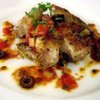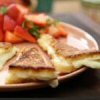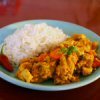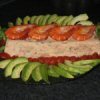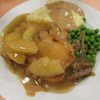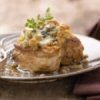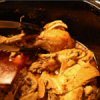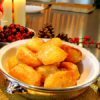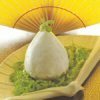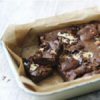4 mins
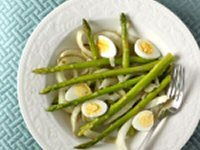
Quail's Eggs
Ingredients for Quail's Eggs
Currently displaying quantities in US Imperial Measurements
How to Cook Quail's Eggs
- Fill a small saucepan two thirds full with water and bring to the boil. Add the quail's eggs using a spoon (do not overcrowd the pan). Boil for between 2½ and 4 minutes depending on your preference. Remove with a slotted spoon and cool down under cold running water or in a bowl filled with ice water. Peel very carefully.
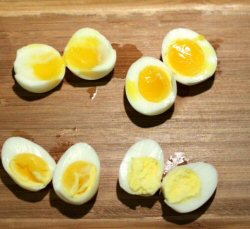 The 'secret' is, of course, how long you cook them for. So, to give you a guide, the eggs in the image were boiled for different lengths of time. From left to right and top to bottom, they were cooked for 2 minutes, 2½ minutes, 3 minutes, and 4 minutes.
The 'secret' is, of course, how long you cook them for. So, to give you a guide, the eggs in the image were boiled for different lengths of time. From left to right and top to bottom, they were cooked for 2 minutes, 2½ minutes, 3 minutes, and 4 minutes.- (Top Left) After two minutes, the white was only partially set and the yolk was still runny.
- (Top right) Two and a half minutes left the egg soft boiled with a white that was set and a yolk that was thick and runny.
- (Bottom Left) Three minutes led to a medium boiled egg with the yolk being mostly set.
- (Bottom Right) Four minutes gives a hard boiled egg with a completely set yolk.
 MARIE-DANIELLE'S HOT TIP:
MARIE-DANIELLE'S HOT TIP:
After cooking, be sure to cool the eggs down quickly under cold running water or in a bowl filled with ice water, otherwise they will continue to cook with their own retained heat.
What To Eat Tonight
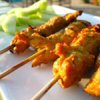
Birthday? Wedding Anniversary? Graduation? Whatever the reason, our recipes for parties bring together all the best elements for you.
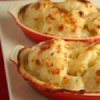
Cheese is just so versatile and there are so many choices from hard Parmesan to soft Cream Cheeses. We have recipes to suit all tastes.
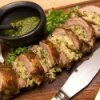
Money is always a concern so our selection of recipes at budget prices is worth a visit. You don't have to sacrifice quality for quantity.
Other Egg Recipes
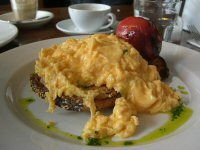
Toasted sandwiches provide a quick and easy method of producing a light meal or a snack. This one is amazing!
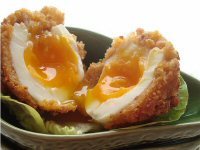
Traditional Scotch Eggs are a delight at any time but, for those watching their weight, they pose a big problem since they are usually deep-fried
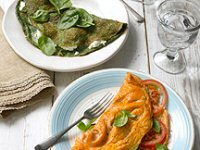
This delicious Spinach and Ricotta Omelette will tickle your taste buds and will delight you if you are trying to lose weight.
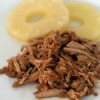 Pulled Pork with Pineapples
Pulled Pork with Pineapples 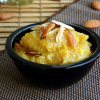 Pumpkin Halwa
Pumpkin Halwa 